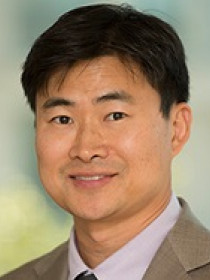
Peter Shin
Connect with Peter
About Peter
Shin is an expert policy analyst and health services researcher, with teaching expertise in qualitative and quantitative analyses, as well as public health management and leadership and the health care safety net. He has authored over one hundred reports on safety-net financing and economic impacts, quality of care, and community health centers and access to care for migrants and seasonal farmworkers and their families, persons with physical disabilities and behavioral challenges, low-income children, minority populations, and military families. Dr. Shin has extensive experience in directing and executing federally research grants for the U.S. Department of Veterans Affairs, Health Resources and Services Administration, Bureau of Primary Health Care, the Agency for Healthcare Research and Quality, the office of the Assistant Secretary for Planning and Evaluation, and the Substance Abuse and Mental Health Services Administration on immediate and emerging issues that require quick turnaround reports, briefs, and analyses. Dr. Shin is also an experienced administrator, overseeing the entire suite of research undertaken in the Geiger Gibson program, which includes millions in funding from a variety of foundations, including the RCHN Community Health Foundation, the Commonwealth Fund, the Kaiser Family Foundation, the United Health Foundation, and the Robert Wood Johnson Foundation as well as other public and private sponsors.
Contributions
Invest in Community Health Centers
No Jargon Podcast
In the News
Publications
Addresses gaps in the evidence base in order to explore patients’ experiences using community health centers for their family planning and reproductive health care, examine factors that either hinder or facilitate receipt of family planning services, from the patient’s perspective, and make recommendations regarding how health centers can improve their family planning services.
Argues that coupling tools such as CMS’s Innovation Accelerator Program with up-front investments from the Health Resources and Services Administration (HRSA), state Medicaid agencies and health centers are ideally positioned to work together to improve the scope and quality of family planning services for health center patients at all points along the health care continuum, beginning with preconception care and continuing throughout the childbearing cycle.
Argues that the HRSA’s quality improvement strategy should include the development of actionable performance measures, training and technical assistance, special supplemental grant awards to support quality improvement efforts and expansion of family planning services, and collaboration with CMS to identify purchasing strategies that can promote the goals of the guidelines, as translated and made actionable in a health center setting
Provides a current snapshot of health centers and discusses recent developments that can be expected to have a significant impact on health center growth in the coming years.
Examines how health centers fulfill their family planning mission.